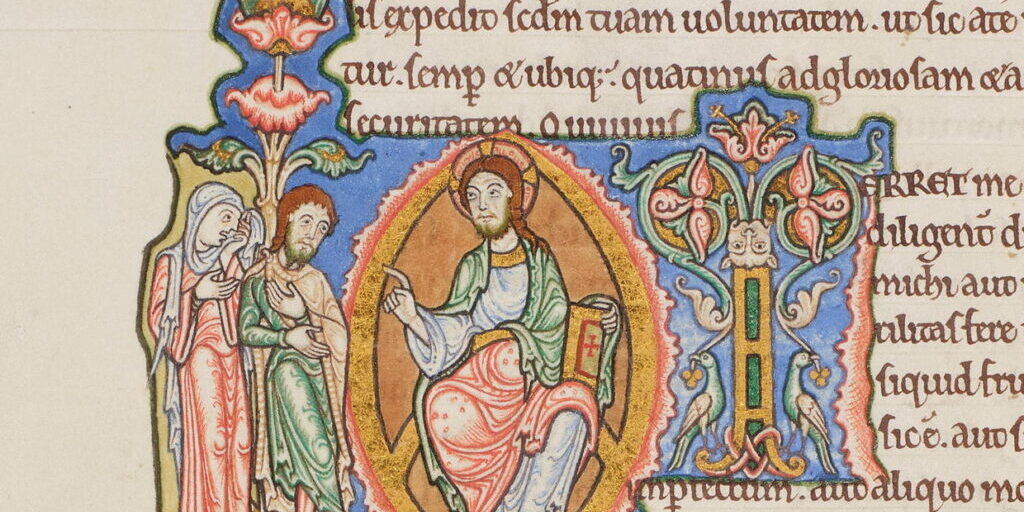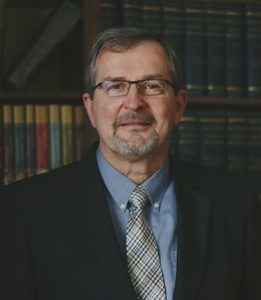
If you love the Puritans then you already love the Reformed Scholastics
Joel Beeke is an expert in Puritan theology and has written extensively on the topic. Credo editor Lance English asks Beeke to share his insights on the value of studying the Puritans, especially those who were Reformed scholastics. Beeke explores the ways in which these traditions provide a rich foundation for contemporary theology, highlighting their focus on scriptural exegesis, philosophical retrieval, and the practical implications of theology for the Christian life. Beeke also discusses the challenges of integrating these traditions into modern theological education and offers guidance for educators and students seeking to deepen their understanding of these important theological streams.
1. How did you first meet the Puritans and what advice do you have for beginning readers who have only recently been introduced to them?
I came under some conviction of sin at the age of 9, and looked through my Dad’s bookcase for help. I settled on reading The Life and Death of Mr. Badman by John Bunyan because I concluded that I was a bad boy. After six months, those convictions receded, however, but they returned in earnest when I was 14. At that point I read through the Bible (more than once) and devoured all the old Banner of Truth Puritan paperbacks in my father’s bookcase every night in my bedroom—usually until around midnight. I couldn’t get enough of them. Reading the Puritans greatly helped me come to spiritual liberty for my own soul over the next 18 months. And I have been reading them ever since as I find that they do more for my soul—alluring, convicting, challenging, and moving me to spiritual growth in Christ more than any other spiritual discipline. I relish their hatred for sin, their love for Christ and for the Triune God, their earnest prayer, and their passion to walk in the King’s highway of holiness. Despite my numerous shortcomings, I want to follow them insofar as they follow Christ.
The theology of Reformed scholasticism was essentially the same as that taught by Heinrich Bullinger and John Calvin . . . . Click To Tweet For beginning readers who often struggle with the rather quaint language of the Puritans, begin with reading “The Puritan Treasures for Today” (Reformation Heritage Books), such as John Flavel’s Triumphing Over Sinful Fear or Anthony Burgess on assurance of faith. These short Puritan works have every sentence carefully edited into contemporary language without losing or distorting content. After reading some of these paperbacks, you will be hooked for life due to the beautiful and weighty substance of their writings!
From there, I would suggest moving to the unedited writings of Thomas Watson, beginning with his Heaven Taken by Storm. His writings are so succinct, so captivating, so probing, so alluring. And then move on to other unedited, easy-to-read Puritans, such as Bunyan, Flavel, Jeremiah Burroughs, Thomas Brooks, and William Bates. From there, gradually work your way up to Thomas Goodwin and John Owen.
2. This issue of Credo Magazine is devoted to Reformed scholasticism. What is Reformed scholasticism? What are some key insights from their theology and method that you believe Protestants should recover today?
By way of background, Reformed scholasticism was an academic movement to crystallize, defend, and more comprehensively develop the biblical insights of the Reformed branch of the Reformation that took place in the first half of the sixteenth century. Reformed scholasticism begun in the mid-sixteenth century and continued through the late eighteenth century. The theology of Reformed scholasticism was essentially the same as that taught by Heinrich Bullinger and John Calvin, but it was expressed with a high degree of exegetical, theological, and philosophical sophistication developed in university settings. Thus, we use the term scholasticism, referring to the methods of schools, including “the tools of linguistic, philosophical, logical, and traditional thought,” as Richard Muller says in his well-respected Post-Reformation Reformed Dogmatics.
Yet the term scholasticism can be misleading, as if the academic method dictated the content of doctrine, thus leading to the false conclusion that Reformed scholasticism taught the exact same doctrines as late medieval (Roman Catholic) scholasticism in the fourteenth and fifteenth centuries (not to be confused with the scholasticism of the High Middle Ages during the tenth through thirteenth centuries). The Reformed scholastics used some of same methods as the medieval scholastics, but Reformed scholastics insisted that Scripture alone has divine authority and, therefore, grounded their theology in the exegesis of the Bible. As a result, the content of their doctrine was significantly different from that of the medieval scholastics in areas such as soteriology and ecclesiology. In other areas of theology, however, Reformed scholastics made a critical appropriation of medieval scholastic teachings, weighing them in the balance of the Holy Scriptures and sifting out human inventions not taught in the Word.
Therefore, one insight that we should recover from Reformed scholasticism is the need to combine sola Scriptura with a critical use of the Christian tradition. Modern evangelicalism too often errs by claiming that sola Scriptura requires us to ignore traditional sources. This leaves evangelicalism vulnerable to people who, seeing its shallowness, plunge themselves into an uncritical acceptance of church tradition and end up in Roman Catholicism or Eastern Orthodoxy. Of course, many Protestants today reject both the inerrancy of Scripture and the helpfulness of tradition to follow human reasoning in formulating their theology—the spirit of liberal modernism. Reformed scholasticism can help us by teaching us to follow Scripture as the supreme authority while giving proper respect to Christian tradition as a witness to how Scripture is best interpreted and applied. One insight that we should recover from Reformed scholasticism is the need to combine sola Scriptura with a critical use of the Christian tradition. Click To Tweet
There are so many ways that Reformed orthodoxy or scholasticism is helpful in its theology that it is difficult for me to isolate a “key insight.” Contrary to much scholarship done in the nineteenth and twentieth centuries, Reformed scholasticism does not consist of a central dogma from which all other doctrines are logically derived. And contrary to popular evangelical thought in recent decades, Reformed scholasticism recognized that to be Reformed (or “Calvinistic” in more recent parlance) cannot be reduced to a list of a handful of points. (It is somewhat humorous to observe that the famous TULIP acronym, by which many people identify themselves as Calvinists, was not coined until centuries after Calvin died.) Perhaps the difficulty of identifying a single theological insight is an insight all by itself. Reformed theology, which is a summary of biblical revelation, is a full-orbed worldview expressed in the confessions and catechisms. We should learn from the Reformed scholastics that we need to embrace and teach the whole counsel of God in doctrine and ethics.
3. Can you briefly explain the similarities and differences between Puritan and Reformed scholastic thought?
English Puritanism was one historical expression of Reformed orthodoxy, which was the religious movement within which Reformed scholasticism operated. Thus, when we speak of the theology of the Puritans and the theology of Reformed scholasticism, we are talking about the same doctrinal and ethical convictions. Reformed Christianity was an international movement and its theologians frequently corresponded with each other and even travelled to teach in schools outside of their own nation.
However, we can make a distinction between Puritan theology and Reformed scholasticism in that the latter involves by definition a highly developed academic method. Sometimes the Puritans wrote in a scholastic manner, which generally meant writing technical treatises in Latin. But the Puritans were also ministers of the Word who pastored congregations. Therefore, many Puritan writings are not highly academic but written for laypeople. In fact, most Puritan books are series of sermons revised for publication. This makes much Puritan literature easier to understand and digest than the highly technical treatises intended to serve the schools or engage in polemics against theological opponents.
4. Do you have a favorite Puritan theologian? If so, why?
Thomas Watson and Thomas Brooks were my early favorites in my-mid-teens, followed by Thomas Goodwin for decades, and more recently I have been profiting greatly from Anthony Burgess. I love Watson for his succinctness. Whose can say this in three words: “Association begets assimilation”? I love Brooks for his amazing substance interlaced with an incredible use of illustrations from a wide field of interests, which always make you want to read the next page. I love Goodwin for his deep exegetical, expository, and experiential insights. His Christ Our Mediator was a boon for my soul when I first read it at age 17. (Yes, I love Owen too!) And I am learning to love Burgess as a Puritan divine who is a well-rounded theologian, skilled in teaching doctrine biblically, confessionally, experientially, and practically. His magisterial Spiritual Refining is a model example of this, but so are his more exegetical works. (Exciting news: Reformation Heritage Books is committed to printing the complete works of Burgess in 14 volumes under the excellent editorial supervision of Chad VanDixhoorn!)
If you put me on a desert island and told me that I could only take one book with me beside the Bible, I would choose Brakel’s The Christian’s Reasonable Service. Click To Tweet If I can cheat a bit here, and throw in a Scottish “puritan” and a Dutch “puritan” as well, I would choose Samuel Rutherford and Wilhelmus a Brakel respectively. I would choose Rutherford for his extraordinarily intimate relationship with Christ that pulsates in his famous letters and his sermonic works and for how he is able to comfort weary souls by directing them to Jesus. I kept his unabridged Letters on my nightstand for more than twenty years, and would often read a letter or two to the joy of my needy soul before going to sleep. And then, Brakel—I can’t say enough good about him. If you put me on a desert island and told me that I could only take one book with me beside the Bible, I would choose Brakel’s The Christian’s Reasonable Service (I would then get 4 volumes instead of one!), not only because of its incredibly warm pastoral theology imbedded in its first two volumes that comprise a masterful systematic theology, but also because of the last two volumes of ethical applications that deal with subjects of amazingly practical import, such as chapters on spiritual courage, or how to fight against backsliding, or how to use the promises of God. Brakel’s writing is theology at its best for the layman who aspires to a closer walk with the triune God.

